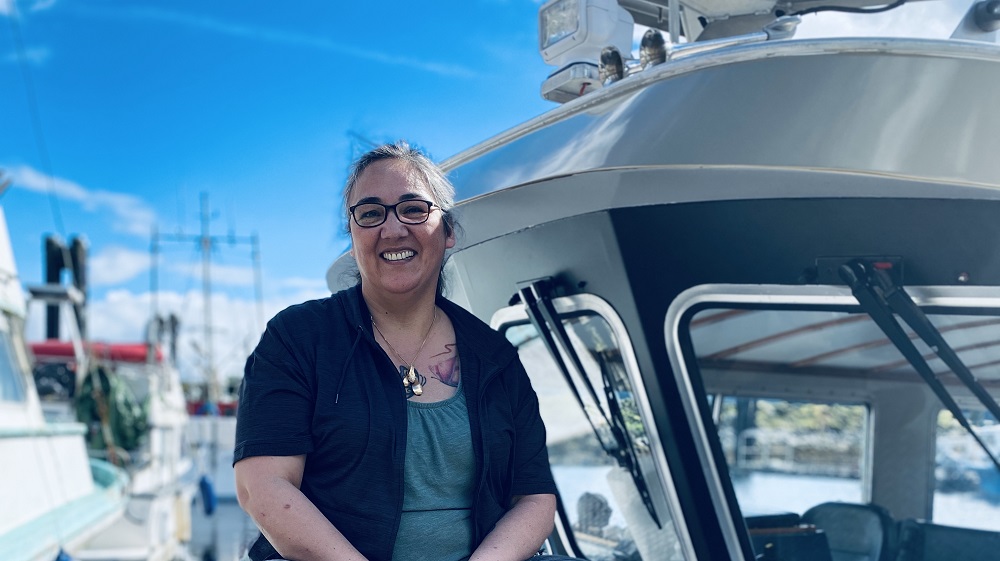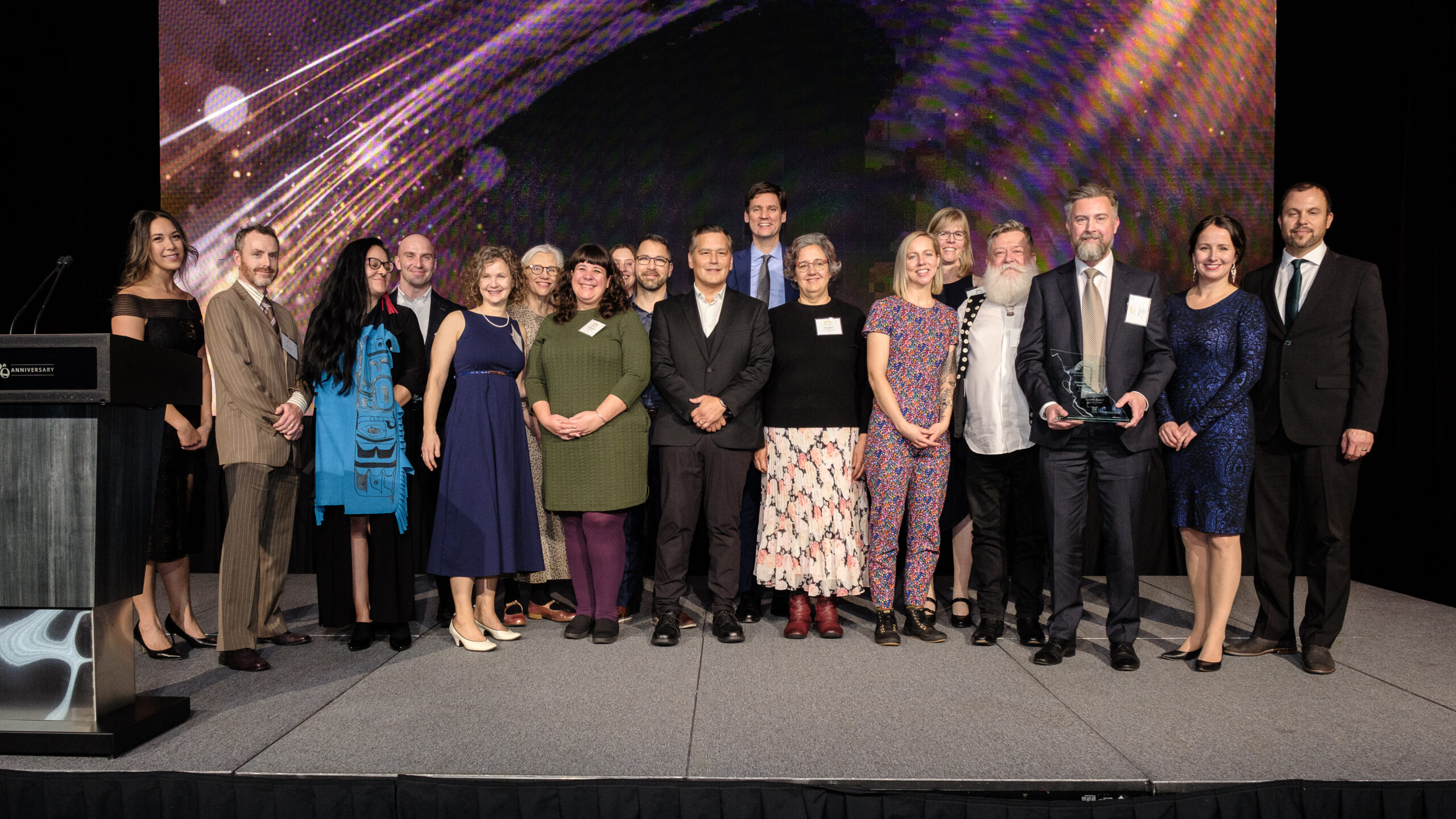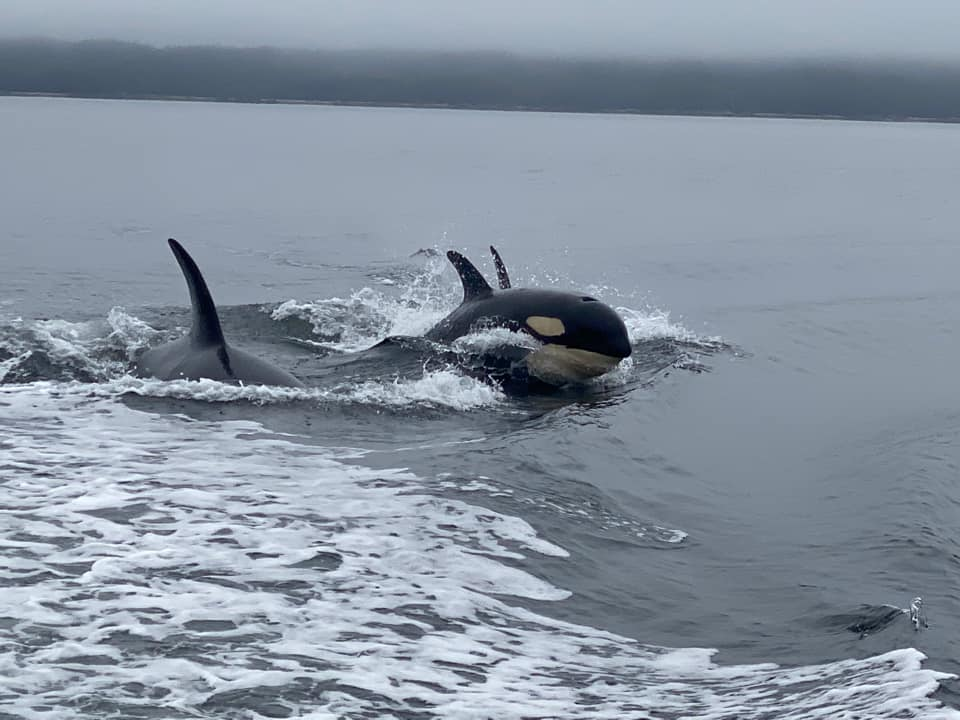The first female director of the Gitga’at Nation’s Oceans and Lands Department, Simone Reece describes her new position and how she continues to overcome any barriers in her way.
WHY DID YOU DECIDE TO TAKE ON THIS ROLE?
I’m hoping to create small changes that start a path to increased inclusion, communication and solidarity in our community. I think that if you start to change the way people communicate, no matter where you are, that’s going to have a ripple effect from the people in that program to their family and towards their friends and family and the bigger community.
WHAT IS ONE OF THE BIG STEWARDSHIP CHALLENGES YOUR COMMUNITY IS FACING?
Dealing with outside agencies and governments when we’re trying to achieve a life of protection and sustainability for our people – and essentially for all Canadians. Being limited by provincial and federal policies can be tough when we’ve had traditional ways of conservation. Whether it be salmon, or any kind of wildlife, and we have to deal with
agencies like DFO or BC Parks and Recreation, we’re not always aligned in the methods for achieving those
goals. And First Nations aren’t always consulted when making those policies.
WHAT IS ONE GOAL YOU’D LIKE TO ACHIEVE AS STEWARDSHIP DIRECTOR?
Clean and simple: To create an atmosphere where our Guardian team feels secure. Where they can face their educational and professional challenges and feel comfortable and supported. When they feel that level of security, they’re willing to take more chances. We need our people to feel more comfortable because of historical and legal challenges and the legacy of residential school.
WHY IS WOMEN’S LEADERSHIP IMPORTANT IN CFN COMMUNITIES?
It’s great to have all our people educated and confident. When men are educated and employed, they improve
their standard of living and that of their immediate family, but when women are educated and employed, they improve the standard of living for people beyond their immediate family. They improve that of the children, the family and friends, and the people in the community they come in contact with. Sociological studies have proven that the way out of generational poverty is to educate women, get women into politics, and get women into leadership roles.
WHO INSPIRED YOU AND WHY?
My first inspiration was my mother. As a single parent in the early 70’s, when many First Nations babies and children were being forcibly removed for no reason, she worked to provide for me and put my well-being, wants and needs above her own. As I got older, I looked back at the many years she didn’t buy herself any new clothes and still managed to look professional. When I was a child, she enrolled in an adult education program, and talked often of the importance her father put on education when she was a child. Over the years, when my own children were young, I often spoke of going back to college and she always encouraged me to do that, but I was hesitant and afraid I couldn’t do it. When I finally did go back, she was my biggest supporter in every way.
AS A WOMAN, WHAT HAS BEEN THE MOST SIGNIFICANT BARRIER IN YOUR CAREER?
I’d have to say that systemic patriarchy has been the biggest barrier to me getting to where I am right now. Parenthood and the inequality women face as opposed to men, the Indian Act, employment/wages, childcare
services, the list goes on and on. The Indian Act essentially took women out of the equation and many of our societies were matriarchal. Just trying to get childcare services as a single parent while you’re trying to go to school or work is ridiculous in Canada.
WHAT ADVICE WOULD YOU GIVE TO YOUNG WOMEN WHO ARE CONSIDERING TAKING ON LEADERSHIP ROLES?
Don’t be intimidated and don’t worry about making mistakes. There are always people who are willing to help and people are more understanding than we assume. Be open enough to change your mind if the proper information leads you away from your current beliefs. I’ve been on a journey for the last 45 years. My personality previously was very rigid and I’d go from one extreme to another. It’s taken me years to discover there is a lot of middle ground and a lot of pieces to make the picture whole.
WHAT WILL BE THE BIGGEST CHALLENGE FOR THE NEXT GENERATION OF FIRST NATIONS WOMEN LEADERS?
I’m going to go back to patriarchy. Colonization and the Indian Act have altered the reverence First Nations people
have historically had for women. It’s changed the historical way of interacting as families, clans, communities and
Nations. Men were put at the top of the pecking order by the patriarchal Indian Act and for some of them, it is difficult to imagine that there was, and could be, a different way of existing together for the betterment of our people.
WHEN YOU FACE CHALLENGES IN YOUR WORK, WHAT INSPIRES AND ENCOURAGES YOU TO CONTINUE?
Duty. Duty to my children and grandbugs, duty to my job, my employers, my community, my People. Throughout
the courses in the BSW program, we explored a lot of First Nations content and I have great role models who I was able to reflect on. A theme that came up for me continuously was duty. Duty can be a double-edged sword; it can cause stress and discomfort, but it can also provide clarity and motivation. I have at times felt cursed for the duty I felt to family or the clan system, but then I have been held up, supported and comforted by that duty.
Simone graduated in the spring with a Bachelor of Social Work (BSW) from the University of British Columbia in Terrace and also holds an Associate in the Arts degree with a specialization in criminology from Coast Mountain College. She’s a mother of three and a grandmother of three grandchildren, and her traditional name is Gwa-Lag, which describes the very instant a bolt of lightning hits the top of a tree and splits it.


